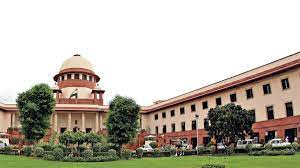(A) Penal Code, 1860, Sections 302 read with Section 34 – Murder – Conviction by High Court set aside – Appreciation of evidence – Testimony of eye witnesses – Circumstantial evidence – Judgment and order of the trial Court acquitting the appellant reversed by High Court –Held that the direct evidence of PW-3 and PW-4 is to be tested on its own strength, especially in light of their subsequent conduct after the incident – As per their version, they were accessories to the fact, however, their subsequent conduct left much to be desired and therefore, their direct testimony was found to be incredible – In the absence of credible direct evidence, the case essentially falls back on the circumstantial evidence – Prosecution has failed to complete the chain of circumstances – The contradictions between oral testimonies and medical examination reports, failure to seize essential materials from the scene of crime, failure to explain the mode of conveyance while going from one place to another, failure to prove the presence of PW-3 at the place of incident, failure to corroborate the injuries etc. are some of the deficiencies in the chain of circumstances – High Court erred in reversing the decision of acquittal, without arriving at any finding of illegality or perversity or error in the reasoning of the Trial Court – Even on a fresh appreciation of evidence find unable to agree with the findings of the High Court – Impugned order and judgment are liable to be set aside -Find no infirmity in the order of the Trial Court and the same stands restored – Appellants acquitted from all the charges levelled upon them – The appellants directed to be released forthwith, if lying in custody. (Para 37, 39)
(B) Criminal Procedure Code, 1973, Section 378(1) – Appeal against acquittal – Principles which come into play while deciding an appeal from acquittal summarized as:
(i) Appreciation of evidence is the core element of a criminal trial and such appreciation must be comprehensive – inclusive of all evidence, oral or documentary;
(ii) Partial or selective appreciation of evidence may result in a miscarriage of justice and is in itself a ground of challenge;
(iii) If the Court, after appreciation of evidence, finds that two views are possible, the one in favour of the accused shall ordinarily be followed;
(iv) If the view of the Trial Court is a legally plausible view, mere possibility of a contrary view shall not justify the reversal of acquittal;
(v) If the appellate Court is inclined to reverse the acquittal in appeal on a re-appreciation of evidence, it must specifically address all the reasons given by the Trial Court for acquittal and must cover all the facts;
(vi) In a case of reversal from acquittal to conviction, the appellate Court must demonstrate an illegality, perversity or error of law or fact in the decision of the Trial Court. (Para 36)
SUPREME COURT OF INDIA
2024 STPL(Web) 93 SC
[2024 INSC 104]
Mallappa & Ors. Vs. State Of Karnataka
Criminal Appeal No. 1162 of 2011-Decided on 12-02-2024.
https://stpllaw.in/wp-content/uploads/2024/04/2024-STPLWeb-93-SC.pdf







